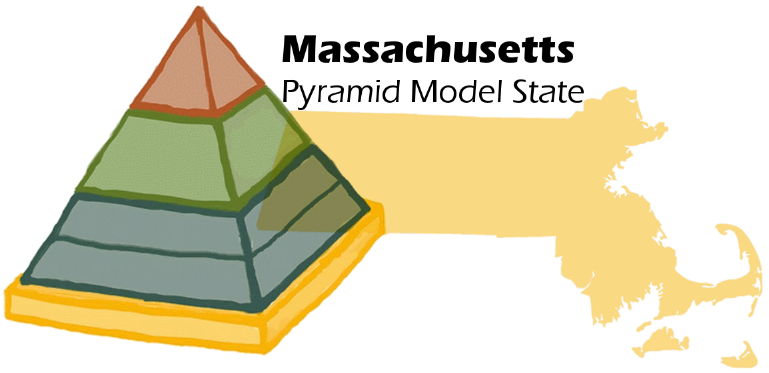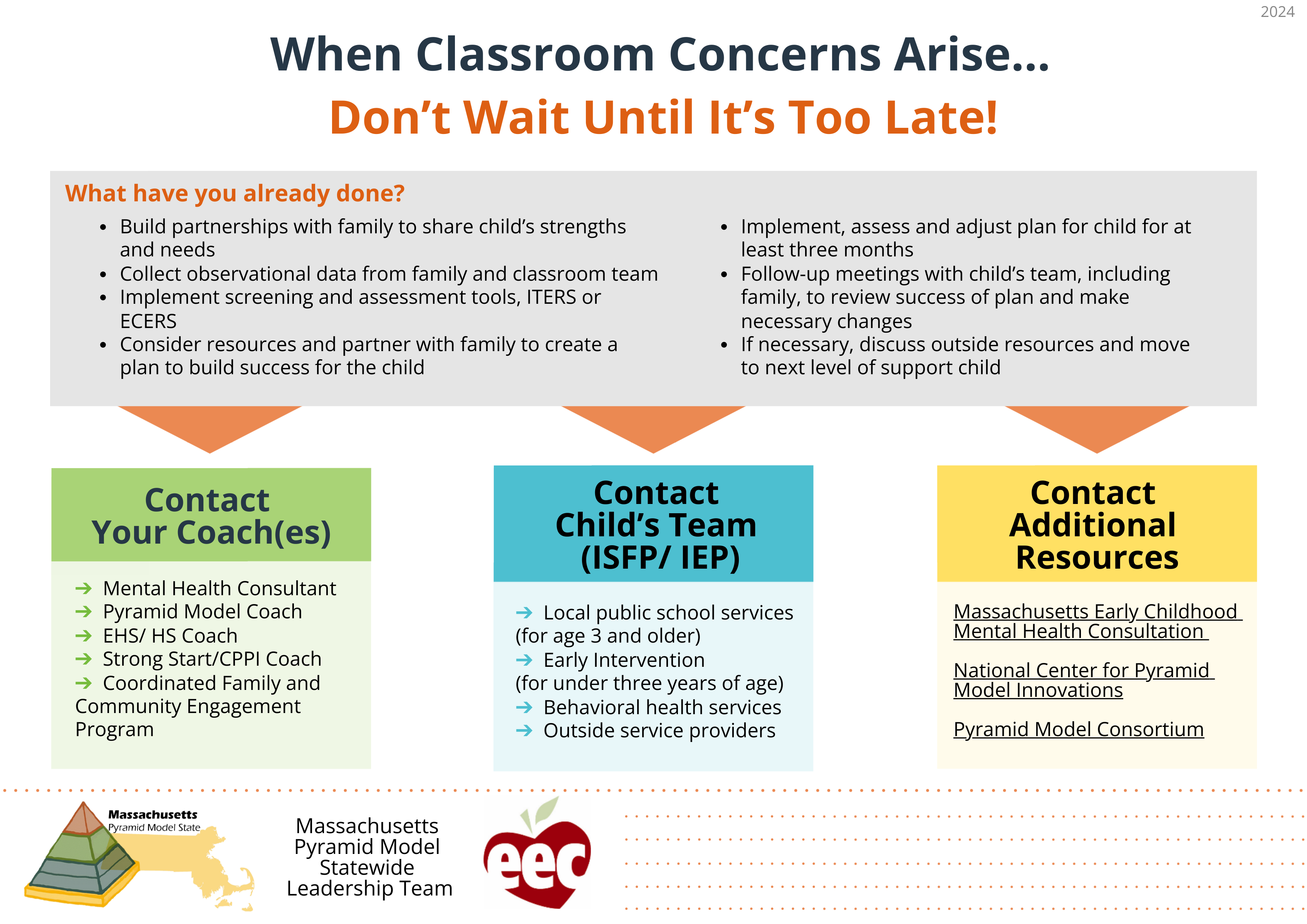Massachusetts
PLEASE PARDON OUR MESS AS WE BUILD OUR NEW PYRAMID MODEL PAGE!
Our Vision
All Massachusetts Infant and Early Childhood Practitioners will have the knowledge, skills, attitudes, and supports necessary to nurture young children’s social-emotional development within their family, culture, and community.
Our Mission
The Massachusetts Pyramid Model State Leadership Team will help develop and sustain a statewide, collaborative professional development structure that utilizes the Pyramid’s conceptual framework, joined with other related promotion, prevention, and intervention efforts. Massachusetts Practitioners trained in the Pyramid Model will have the capacity to promote social and emotional competence, prevent emotional disruption, address challenging behavior, and understand the impact of nurturing relationships on children’s capacity to learn.

MA History
In 2009 Massachusetts became one of the first states to implement Pyramid Model practices. A State Leadership Team (SLT) was established with MA leaders from public and private organizations concerned with the social-emotional development of young children and their families.
The SLT has worked closely with the Pyramid Model Consortium to develop a comprehensive strategic plan for implementation of the Pyramid Model and complete the exploration/planning stage for each of the Pyramid Model key structures.
The Department of Elementary and Secondary Education (DESE) and the Department of Early Education and Care (EEC) are aligning their work to bring EC-PBS Pyramid Model strategies to programs across Massachusetts, creating linkages across district-based and community-based programs.
The community-wide approach is designed to create stronger networks for families, provide cohesive services for children, and support interconnected professional development for staff.
What is the State Leadership Team?
Our State Leadership Team includes representation across many different agencies, organizations, and disciplines active in the implementation of the Pyramid Model across the Commonwealth. This membership reflects a a high level of collaboration amongst those who serve families with young children in Massachusetts.
Professional Development Resources

Family Child Care Resources
Pyramid Partners and Resources
New Resource to Support Behavioral Health!
Click on the image to
download as a PDF!

Pediatric Mental Health Care Access (PMHCA)
The Massachusetts Department of Public Health (DPH) was awarded the Pediatric Mental Health Care Access (PMHCA) grant, a five-year grant from the Health Resources and Services Administration of the U.S. Department of Health and Human Services. The project will promote early childhood mental health (ECMH) integration into pediatric primary care by enhancing the ECMH capacity of the MA Child Psychiatry Access Project (MCPAP), centering family engagement and equity. DPH will partner with the MCPAP team at UMass Medical Center, the Department of Mental Health, MassHealth, and the Young Children’s Council to:
- establish and train an Early Childhood MCPAP team, including a part time psychiatrist and full time ECMH clinician, to provide consultation to primary care practices;
- provide training and case consultation using the ECHO model to enable primary care provider teams to support the behavioral health needs and wellness of children under 6 years old (including the evidence-based Pyramid Model and DC:0-5);
- and provide enhanced ECMH tools and resources and linkages to the early childhood and family support system.
Continue to check back about different ways to connect to Pyramid Model through your Community.
Welcome to the Massachusetts Pyramid Model homepage for families resources! Here you will find many resources for understanding and supporting young children. Sometimes as parents or caretakers of young children, we can feel overwhelmed by not being able to understand their behavior. Children might express themselves through a temper tantrum, hyperactivity, sullenness, silliness, or withdrawal. All of these are demonstrations of communication, but for kids it can be hard to find the words! It is up to us, the adults, to support and develop positive relationships with children in order for all children to grow up into healthy adults.
On this page you will find resources for addressing challenging behavior as well as general resources on social emotional development of young children.
Massachusetts Statewide Family Engagement website – https://masfec.org/
Massachusetts Strengthening Partnerships – https://www.doe.mass.edu/sfs/family-engagement-framework.pdf
Positive Solutions for Families – Sessions 1-7 Download Here | Family Resource Guide- Download Here
National Center for Pyramid Model Innovations Family Engagement Resources – View Resources Here